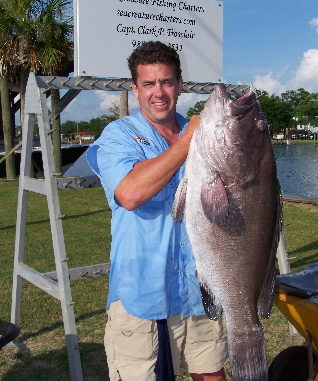
Gov. Bobby Jindal expected to zero out rigs-to-reef fund to help balance state budget.
The House Appropriations Committee approved the required legislation earlier this week to transfer $20.6 million from the Artificial Reef Development Fund to help plug holes in the administration’s annual budget. This is despite lingering questions over the amount being swept out of the fund, which currently holds only $12 million and will be up to roughly $14 million by the time Gov. Bobby Jindal’s administration initiates the transfer.
Michael DiResto, assistant commissioner of policy and communications for the Division of Administration, said after Monday’s meeting that the administration is not planning to adjust the figure of $20.6 million downward and is comfortable with the provision.
Lawmakers and lobbyists are now predicting that the Jindal administration intends to take all of the money out of the fund, leaving it at a zero balance until it gradually builds back up.
Gifford Briggs, vice president of the Louisiana Oil and Gas Association, said he expected the administration to simply continue pulling money out of the fund until the $20.6 million goal is reached.
“We’re sweeping money that is not there, and I guess we’re expecting those additional monies that would come to be swept out of the fund,” he said.
House Bill 452 by Appropriations Chairman Jim Fannin (D-Jonesboro) takes $519 million out of several dedicated funds like the reef fund in an effort to help balance the budget, chiefly to the benefit of higher education. The committee approved the bill by a vote of 13-10 before endorsing the $24 billion state spending plan, as found in Fannin’s House Bill 1.
For the remainder of the session, which ends June 6, the two bills will be closely connected in all coming budget debates.
Since the 2009-10 fiscal year, the Jindal administration has taken roughly $45 million from the reef fund. The Louisiana Wildlife and Fisheries Commission, appointed fully by Jindal, is considering litigation over the past transfers — and the latest if approved — but members say the administration has offered to find a way to repay the money.
It will be a topic of discussion at its next meeting Thursday. Fannin’s bills, meanwhile, will be debated by the full House May 9.
The reef fund contains payments made primarily by oil and gas companies looking to save money by “reefing” a rig rather than the costlier alternative of pulling it inshore to have scrapped.
Several conservation groups say they support the rigs-to-reefs program, bankrolled by the fund because it creates sustainable underwater habitats.
The raids of the fund has attracted the interest of several business groups, in addition to the usual suspects like the Coastal Conservation Association and the Louisiana Wildlife Federation.
For instance, Briggs said the fund is helping the energy industry deal with federal mandates related to removing so-called “idle iron” from the Gulf of Mexico.
“We can either bring it inshore at a really high cost or participate in the rigs-to-reef fund for fishermen and divers and people who enjoy the coast,” he said.
Mike Lyons, an attorney for the Louisiana Mid-Continent Oil and Gas Association, said the state has a unique program from a national perspective.
“This is a unique collaboration between the oil and gas industry, and the state and the fishing community,” Lyons said. “We should be promoting something like this.”
Ginger Sawyer, director of energy issues for the Louisiana Association of Business and Industry, said LABI is opposed to all of the governor’s proposed transfers because it takes money away from funds that were paid into by users for a specific purpose. She added that has been LABI’s stance since 2009, which she described as the “beginning of the sweeps.”
In an effort to guard against future raids, Sen. Bret Allain, R-Franklin, advanced legislation through the full Senate today that recreates the reef fund as a constitutional program. It’s currently in state statute, making it easier for the administration and lawmakers to approve such sweeps.
If Senate Bill 128, a proposed constitutional amendment, is approved by the Legislature, voters will have their say on the Nov. 4, 2014, ballot.
Since the Artificial Reef Program was created in 1986, more than 70 oil and gas related companies have participated, according to the Louisiana Department of Wildlife and Fisheries. In addition to the materials, companies also donate half of their realized savings over a traditional onshore removal into the fund, which helped create the world’s largest artificial reef in 1999 from a Freeport sulfur mine near Grand Isle.
The issue of whether money from the fund can be used for other purposes is rooted in how the donations are made. When an energy company or another party donate money to the program, it is deposited into the Conservation Fund, which is overseen by the Department of Wildlife and Fisheries and protected by the state Constitution.